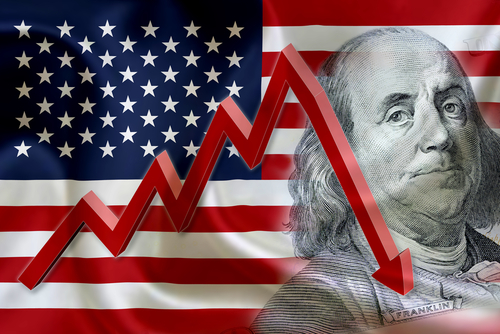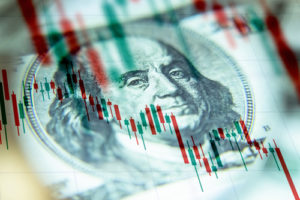
As inflation traps the country, some economists fear the US will enter a recession.
Inflation is at levels not seen since the late 1970s, and the Fed appears ready to act even more to contain it.
To lower prices, the Fed must raise interest rates, which slows spending. The Fed is so far behind that it may cause a recession while fighting inflation.
Inflation just hit 8.5%, highest since 1981. It’s hard to express just how bad this number is for Democrats.
Also significantly increases the chances the Fed pulls a Volcker and triggers a recession to pull down inflation. Bad news all around.
— Shane 🇺🇸 🇺🇦 (@Shane_maps) April 12, 2022
Worries From Experts
Some shorter-term Treasury notes have increased in yield more than longer-term ones, causing an “inversion,” according to American Enterprise Institute senior researcher Desmond Lachman.
According to Lachman, the indicator has been reliable in predicting downturns since the postwar period. He claims every time the yield curve inverts, a recession occurs within 6-24 months.
According to Lachman, the bond market is more precise than the stock market.
As a result of the Fed raising its interest rate objective by a quarter percentage point, the yield curves have flattened. In response to the country’s astronomical inflation, Fed Chairman Jerome Powell hinted the central bank may raise rates more aggressively.
The latest Fed minutes revealed authorities found the labor force too hot and were contemplating a more assertive hike for the May meeting.
The Fed also plans to reduce its financial statement by $95 billion per month, a hawkish move from previous months.
Economists’ fears about the recession period have shifted. The Wall Street Journal found an increase in economists predicting a recession in their regular survey.
A Soft Landing
A year ago, only about one in ten economists surveyed predicted a recession within the following year.
It was 18% at the beginning of the year and is now 28%. The higher prices and upcoming rate hikes slashed respondents’ average growth forecasts.
Stuart Varney warns of recession as inflation hits 40-year high https://t.co/NyEsKac0Mp
— Fox News (@FoxNews) April 12, 2022
A “soft landing” is when the Fed lowers inflation without slowing economic growth enough to cause a recession.
According to Lachman, when inflation rises above 4%, the Fed has never succeeded in providing a “soft landing.” Inflation is a more significant concern than previously anticipated.
It’s tough for economists to anticipate recessions, but Lachman said the odds of one occurring by the end of the year are higher than 50%.
He also said interest rate hikes could burst equity and housing bubbles, causing a recession.
As a result of the Ukraine conflict, energy costs have risen, causing more inflation and complicating the Fed’s efforts to bring prices down and achieve a soft landing.
According to Amy Crews Cutts of AC Cutts & Associates LLC, the war’s impact on commodities prices is causing higher inflation. She expects a 70% chance of a recession next year.
With a tough midterm election battle looming, high inflation has the Biden administration and Democrats worried.
According to a recent poll, those who say inflation is the country’s most significant issue have doubled in three months.
A modest percentage of small company owners believe President Biden is doing enough to combat historically high inflation.
















